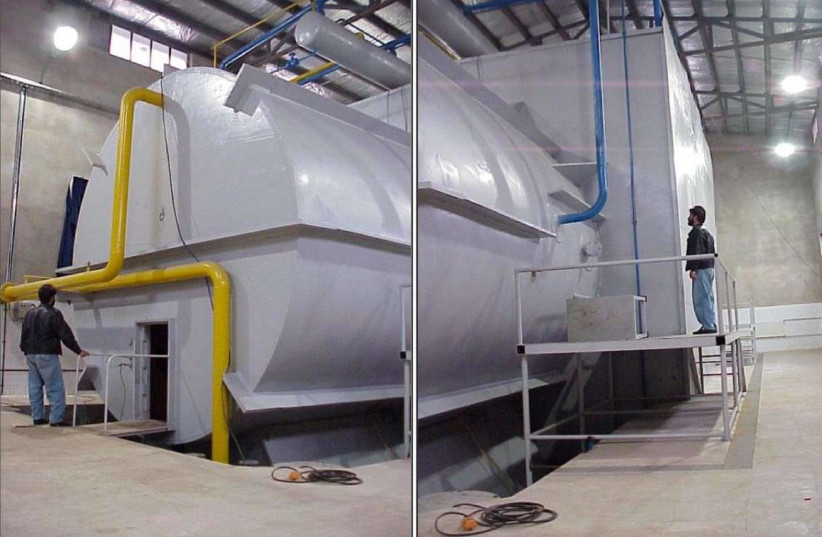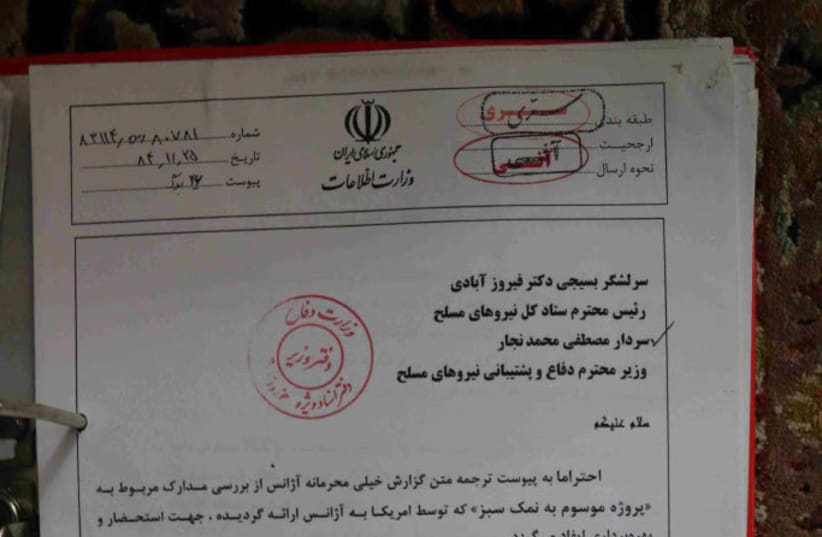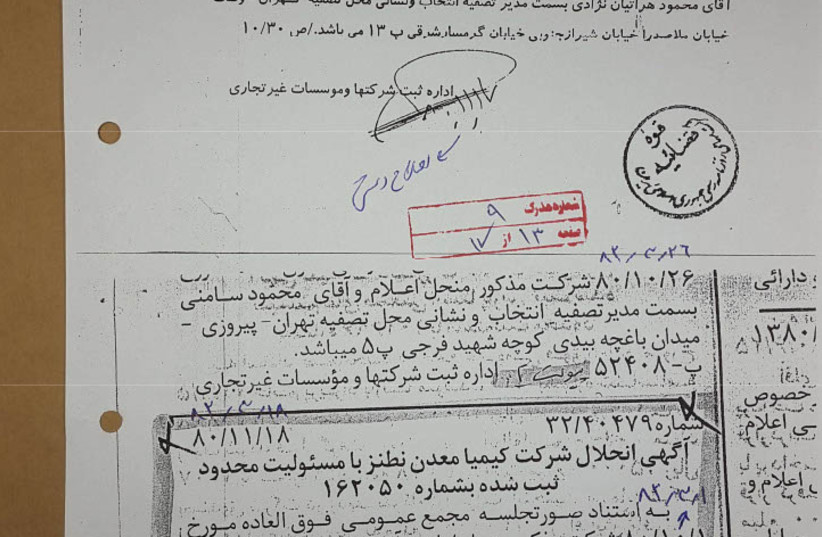Iran used stolen documents to deceive the International Atomic Energy Agency, and continues lying to the world, Prime Minister Naftali Bennett warned on Tuesday, ahead of the UN atomic agency’s board meeting next week.
IAEA Director-General Rafael Grossi released a report to the agency’s Board of Governors a day earlier estimating that Iran already has enough enriched uranium for a nuclear weapon, 18 times more than the 2015 deal with world powers permitted.
The IAEA has been investigating the possible military dimensions of Iran’s nuclear program and nuclear sites that the Islamic Republic has not disclosed. One of Iran’s demands in negotiations to renew the nuclear deal was to close the probe.
“Iran has not provided explanations that are technically credible in relation to the Agency’s findings at those locations,” Grossi wrote. “The Agency cannot confirm the correctness and completeness of Iran’s declarations under its Comprehensive Safeguards Agreement.”
The future of the IAEA investigation is expected to come up at its Board of Governors meeting on June 6.
Bennett cited documents from the Iranian nuclear archive smuggled to Israel by the Mossad in 2018, which show that Iran used information from stolen classified IAEA documents in 2004 and 2005 to reassure the agency that it is not carrying out clandestine nuclear activities.
Iran “created cover stories and hid evidence to evade [the IAEA’s] nuclear probes,” Bennett said in a video posted online.
“Here it is, in the Persian language, hundreds of pages marked with the stamp of Iran’s Ministry of Intelligence,” Bennett added, displaying the documents. “There are even some handwritten notes on the documents by senior Iranian officials – like this one, written by then-defense minister to [Iran nuclear program chief Mohsen] Fakhrizadeh. He writes, ‘Sooner or later they (referring to the Atomic Agency) will ask us – and we’ll need to have a comprehensive cover story for them.’
Iran stole classified documents from the UN’s Atomic Agency @IAEAorg and used that information to systematically evade nuclear probes.How do we know?Because we got our hands on Iran’s deception plan. It’s right here:https://t.co/qg1Fj7iClA pic.twitter.com/6dAhI6VmmW
— Naftali Bennett בנט (@naftalibennett) May 31, 2022
“Iran lied to the world, Iran is lying to the world again right now, and the world must make sure that Iran doesn’t get away scot-free,”
Prime Minister Naftali Bennett
Despite past IAEA reports critical of Iran, the Board of Governors has hesitated to censure Tehran, in the interest of advancing negotiations to revive the Joint Comprehensive Plan of Action, as the 2015 nuclear deal was called.
Those talks have stalled for months, due to an Iranian demand that the US remove the Islamic Revolutionary Guard Corps from its Foreign Terrorist Organizations list.
However, an Israeli diplomatic source expressed concern on Tuesday that Iran could still evade consequences due to political pressures.
US President Joe Biden informed Bennett in a phone call last month that the administration will not change the IRGC’s status, even at the expense of a new nuclear deal. Bennett confirmed a report by Politico on the decision last week, praising Biden as “a true friend of Israel who is concerned about its security.”
The IRGC is “the world’s biggest terrorist organization,” he said. “This is the right, moral and just decision by President Biden.”
Iran stole classified documents from the UN’s Atomic Agency @IAEAorg and used that information to systematically evade nuclear probes.How do we know?Because we got our hands on Iran’s deception plan. It’s right here:https://t.co/qg1Fj7iClA pic.twitter.com/6dAhI6VmmW
— Naftali Bennett בנט (@naftalibennett) May 31, 2022


